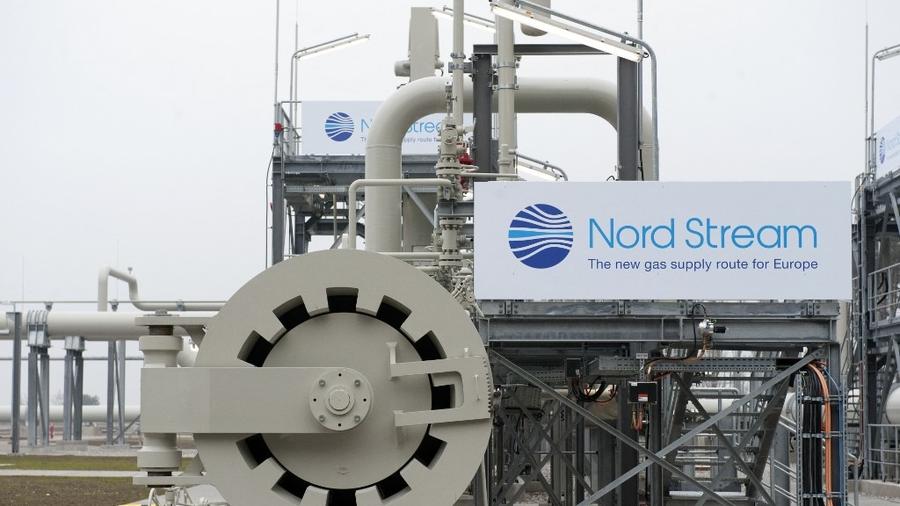 This file photo taken on Nov 8, 2011 shows a view of the gas pipeline prior to an inaugural ceremony for the first of Nord Stream's twin 1,224 kilometer gas pipelines through the Baltic Sea, in Lubmin, northeastern Germany. (JOHN MACDOUGALL / AFP)
This file photo taken on Nov 8, 2011 shows a view of the gas pipeline prior to an inaugural ceremony for the first of Nord Stream's twin 1,224 kilometer gas pipelines through the Baltic Sea, in Lubmin, northeastern Germany. (JOHN MACDOUGALL / AFP)
BERLIN - The turbine for the Nord Stream 1 gas pipeline, which was serviced in Canada, was ready for use and could be delivered to Russia "at any time," said German Chancellor Olaf Scholz on Wednesday.
"All it takes is for someone to say, 'I'd like to have it.' Then it will be there very quickly," said Scholz after a visit to the Siemens plant in Muelheim an der Ruhr in North Rhine-Westphalia, where the turbine is currently located.
Nothing stands in the way of its onward transport to Russia, except that the Russian buyers must state that they also want the turbine and provide the necessary information for customs transport.
Olaf Scholz, German chancellor
The turbine was serviced by Siemens Energy in Canada, after which it has been in Germany since mid-July.
"Nothing stands in the way of its onward transport to Russia, except that the Russian buyers must state that they also want the turbine and provide the necessary information for customs transport," said Scholz.
Russian gas supplies to Germany via the Nord Stream 1 pipeline have been reduced several times and Europe's biggest economy is struggling to fill its gas storage.
ALSO READ: Europe scrambles to deal with gas crisis
Last Wednesday, the deliveries were further cut to 20 percent of the pipeline's full capacity.
German's former chancellor Gerhard Schroeder held Siemens Energy responsible for the turbine's late delivery, questioning why it was brought to Germany and not to Russia. "This is the responsibility of Siemens," he told RTL/n-tv.
To reduce natural gas consumption in power generation, the German government allowed coal-fired power plants to return from reserve and is also considering extending the lifetime of the country's last three nuclear power plants beyond 2022.
In order to prepare for the coming winter, energy ministers of the European Union last week agreed on a voluntary savings target of 15 percent compared to a country's average gas consumption in the past five years until the end of March 2023.
READ MORE: Russia's Nord Stream 2 pipeline ready to pump gas to Europe
If the gas crisis worsens, the EU decision also provides for the possibility of triggering a "Union alert." In this case, the reduction of gas consumption would become mandatory.



